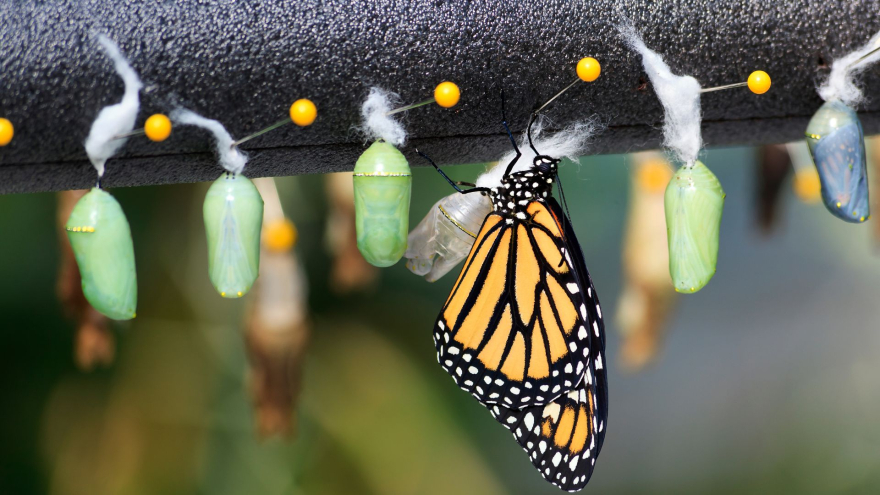|

When my son was in pre-k, his teacher was "hatching" butterflies as part of their science project. Each day, the children watched the chrysalises eagerly for the first butterfly to appear.
I remember his teacher explaining to the class the importance of "allowing" the butterfly to "fight" her way out of the chrysalis because this made her wings strong. She explained that if we stepped in to "help," the butterflies' wings would not fully develop, and she would never be able to fly.
I liken that to teaching our kids resilience. It is our nature to want to "step in" to help, but when we do, we cheat our kids the opportunity to grow their wings and fly.
What is Resilience?
Resilience is the ability to "bounce back" from challenging experiences, setbacks, and disappointment. It's the "stick-to-it-tive ness" when attempting new things and the ability to problem-solve.
Many parents ask us, "how do I teach my child to be resilient?"
TIP #1
Don't Be Quick to Help
Many parents find it distressing when their child is "struggling" or "having a hard time" figuring things out. In their desire to "help," they step in and solve the problem, provide the solution, or do the task for them.
Unfortunately, stepping in to help interferes with our children's chance to build resilience.
Dr. Ginsburg, a child pediatrician, and human development expert, proposes that there are 7 C's common in children who display resilience. The first of which is Competence.
Competence is the ability to do something successfully and efficiently. To be "successful or efficient" at something, we must have ample opportunities to try.
This implies two things. Competence is not automatic— it takes effort and repetition. It also means we learn by making mistakes. We build competence by adjusting and trying new strategies over and over again.
The next time your child is "struggling" with something, whether it's building legos, conquering a new "level" of their video game, or running into conflict with a friend, be sure to give them space to solve it themselves before you step in to "help."
As parents, we have no shortage of ideas or solutions that we KNOW would work if they'd just listen to us and let us HELP. But remember, it will "weaken" their wings if we TELL them what to do or SOLVE it for them.
Instead, help them develop resilience by asking questions, helping them gain insight into their challenges, and supporting them to think through multiple options on their own.
TIP #2
Ask Open-Ended Questions:
What is the outcome you seek?
What got in your way?
What has worked in the past?
I wonder what would happen if?
What other options do you have?
What's one small step you can take?
As our kiddos get ample opportunity to practice, they will begin showing competence. And when that happens, we can build their resiliency muscle by praising the process, not the person.
TIP #3
Praise the process, not the person.
When our kids do something well or show "competence," we tend to praise the person by saying things like, "you're awesome, you're so smart, good job, and way to go! When we praise the person, we focus on their qualities, traits, or abilities.
According to Carol Dweck, a slight shift in how we praise our kids can improve motivation, effort, and perseverance.
Instead of saying things like;
- You're awesome
- Good job
- Way to go
- You're so smart
Try what Carol describes as "process praise." Process praise acknowledges the student's effort, strategies, or actions that contributed to the task's success.
- I see how hard you worked at that
- Your perseverance paid off
- I love how you kept at it until you figured it out
- You found a strategy to solve the puzzle
- I noticed you stayed focused and worked really hard
- You really studied for your math test, and I see the improvement
If we want our kids to develop resilience and competence, then helping them focus on their process and strategies rather than their talents or abilities will teach them that "hard work pays off."
Michelle Bora sums it up nicely in an article on Today Parents: "Research shows that kids who persist and excel recognize that success comes from hard work and practice, not luck, money or genetics. If kids believe that performance is due to effort, they will be less likely to give up and work harder when the going gets tough."
Let's help our kids develop resilience over the summer by remembering these three tips:
Don't be quick to "help."
Ask open-ended questions so they can gain insight and find solutions.
Praise the process, not the person
Until next time,
Coco
|